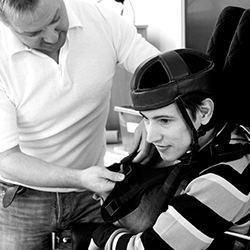Rehabilitation worker

If you’re interested in working as a rehabilitation worker, there’s lots of advice about finding a role on the Starting your career page. You could look online or in your local newspaper to find vacancies, or you might want to contact local care providers to ask them directly.
Role overview
- carrying out assessments within the community to identify what care and support people need
- working with other professionals such as social workers and occupational therapists to make sure people get the right help
- providing advice about how to use specialist equipment
- teaching people daily life skills such as making a cup of tea, or reading braille
- organising activities such as sports, drama and educational activities.
You could work with lots of different people including adults with learning disabilities, physical disabilities including sight or hearing loss, mental health conditions and drug or substance abuse issues.
Skills and experience
Your employer might ask that you have qualifications showing good English and number skills such as GCSE in English and maths.
It might be useful to have experience working in a similar role or with vulnerable adults. You can gain this experience through a work placement, from your personal life, through volunteering or as part of a traineeship or apprenticeship.
Opportunities
While in post you could do a vocational qualification such as a Diploma in Health and Social Care or continuing professional development qualification such as an award or certificate in activity provision.
Your employer may pay for you to complete these qualifications or you could apply for an Advanced Learner Loan to pay for them yourself.
Find out more about other roles.